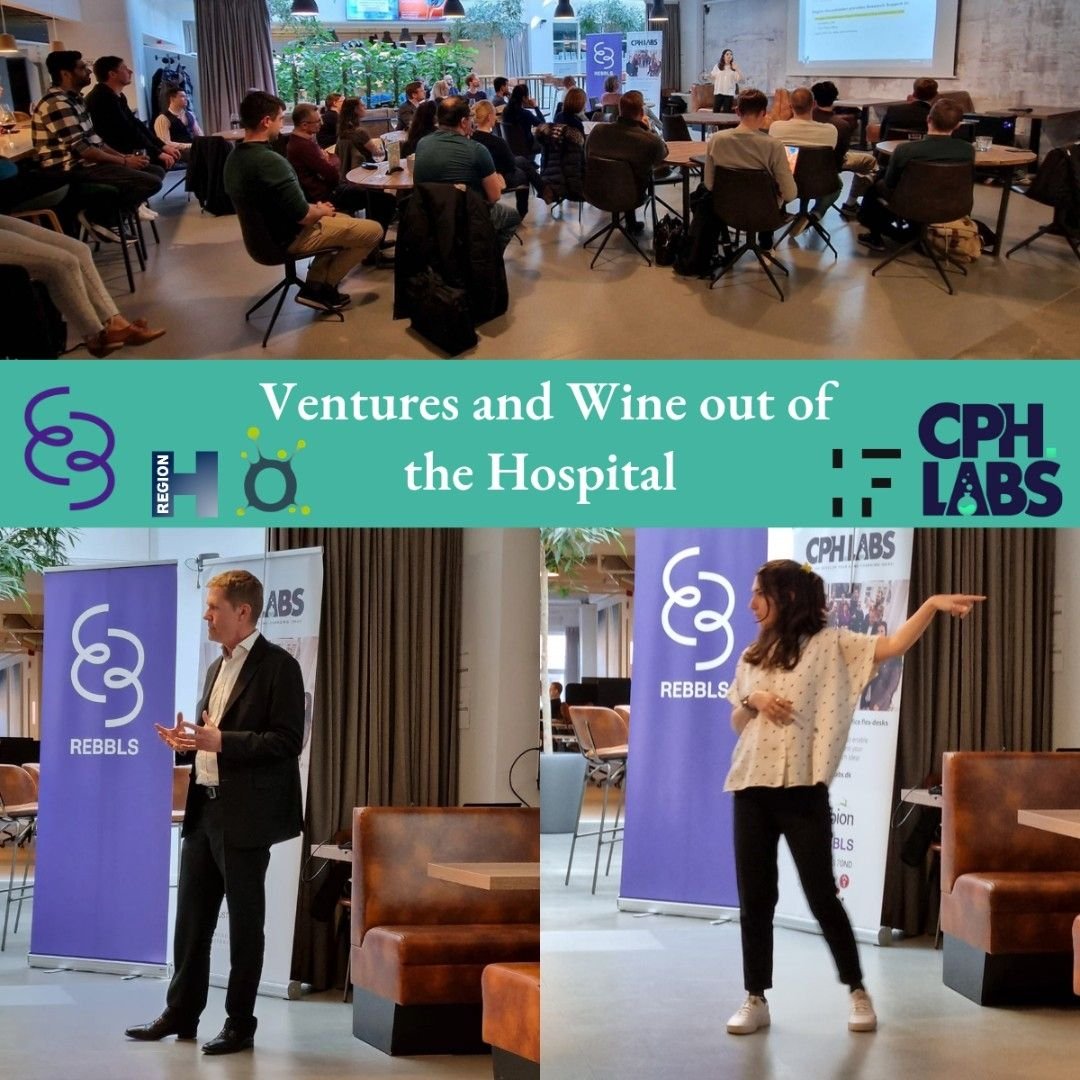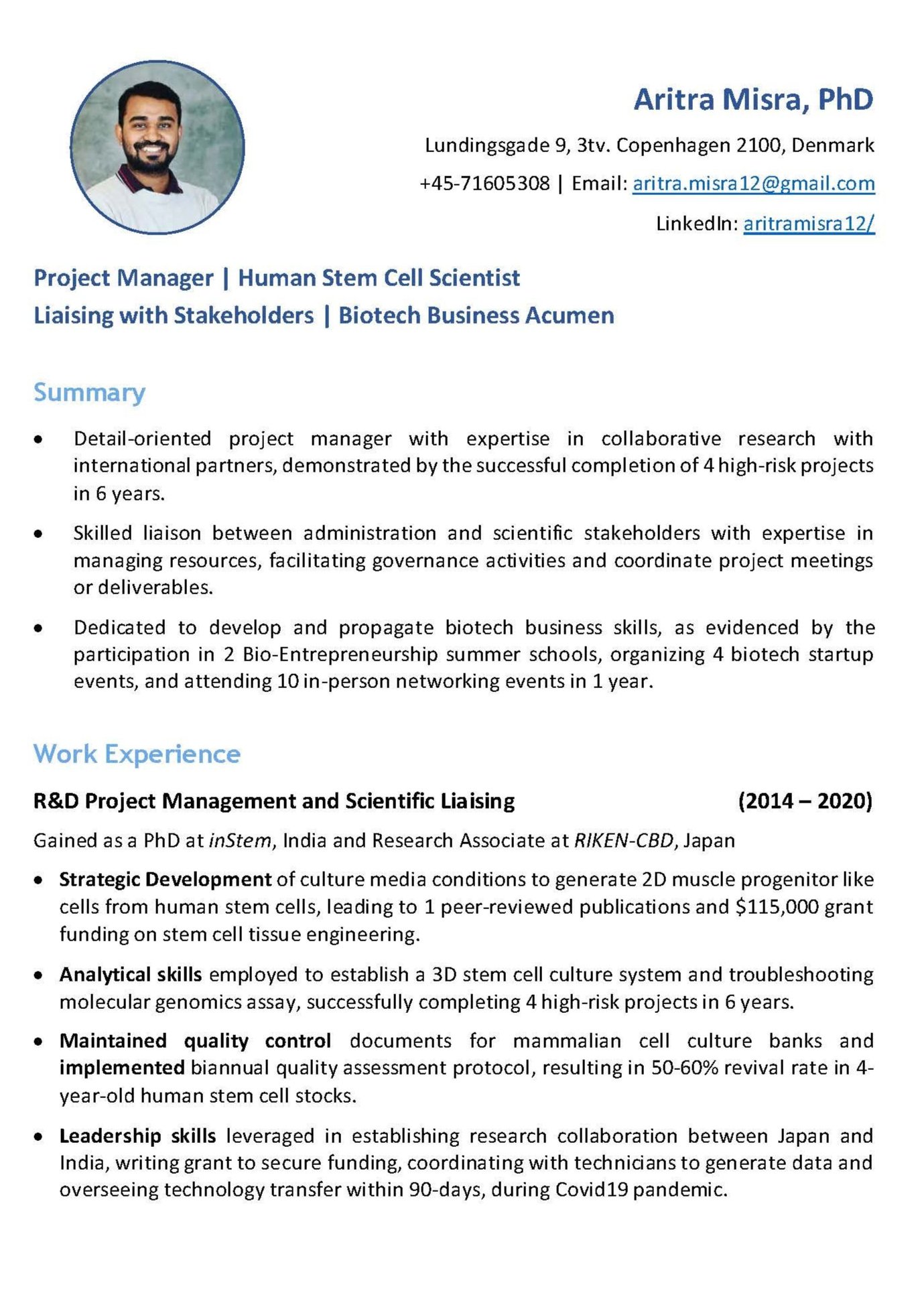#10 Networking and Resume Hack for Industry Breakthrough
Hello everyone,
Welcome to my website and my 10th blog post :)
In this blog, I will share the 2 critical elements to implement for academia to industry transition, that enhanced my chances of converting Applications to Interview for jobs.
It is a clear strategy that increased my visibility in the market and communicated my skills effectively.
I took me 1.5 years to get a job after my postdoc and this is what worked for me:
1. Increasing in-person networking with focus on developing trust about my capabilities.
2. Developing a Resume that brings the recruiter’s attention to relevant skills very fast.
1. Boosting In-person Networking With a Focus on Genuine Connections
In the biotech and pharma worlds, where cutting-edge science happens at breakneck speed, it's crucial for employers to trust that you can deliver—quickly adapting, thriving under pressure, and working well in teams. And let's not even start on startups, where the stakes are sky-high and agility is everything.
In such situations, if an employer is confident about your professional character, they will hire you even if you lack some skills. How do you convey that? - Through relationship building during in-person networking.
I started networking with a goal of communicating my character as a professional. I went to multiple events and met multiple people, talking to them on specific topics and connecting on linkedin. But I never directly asked for jobs at the get go. At the beginning, I conveyed my interest in learning about the ecosystem, communicated my efforts in acquiring new skills, eagerness to discuss recent biotech updates. These conversations paved the way for engaging discussions with biotech professionals, transforming mere networks into meaningful personal connections - THIS IS KEY TO SUCCESS.
Networking event in Danish Biotech Ecosystem
Event where Ayşe Tolunay (Fundraising Advisor to Rigshospitalet, Denmark) and Morten Albrechtsen CEO of FluoGuide A/S talks about how Hospital Research Ecosystem supports startup growth
I even went out of my way to work as a volunteer (unpaid work), just to make more in-person meeting and build personal connections. I did this for 2 biotech startup companies and 1 non-profit (LinkedIn).
The more I implemented this strategy, I met people again and again at different events. In all these meetings, I was focused in communicating my efforts, character and diligence towards work. This approach fostered an effective method of communicating how unique I am as a personality and my skills are compared to my peers, which generated trust about my capabilities in my network - who later became my point of contact for job opportunities. AND WHAT IS THE RESULT ?
1. I got notified of 4 job interviews through in-person network
2. People personally asked me whether I was available for job roles
3. People connected me to hiring managers or HR
4. People gave me job referrals
OUTCOME - I went to the final stage of all 4 interviews - I accepted a job offer.
CONCLUSION - In-Person relationship building tremendously increases the chances of getting jobs.
To get a different perspective about in-person networking - read my Blog: #7 A good networking technique to succeed in the job market (Link)
2. Nail the First Page of Your Resume
This is from my experience of applying for 4 types of jobs:
a. R&D Scientist
b. Project Manager (PM) in a startup
c. Project Manager (PM) at a startup incubator
d. Field Application Scientist (FAS).
The R&D Scientist resume has a very different layout compared to the others. For R&D Scientist, I went heavy on demonstrating my experimental research skills. For roles like Project Manager, either in startups or incubators, or as a Field Application Scientist, the focus was primarily on managerial prowess.
The above resume layout was my first, when I first started applying for jobs. In my opinion, its a very bad resume structure.
1. The information is spread over large areas and does not bring your attention onto relevant points - HR will have to read a lot to understand whether I am fit for this role. HRs do not have time. Thus elaborate resumes dont get selected.
2. The work experience was spread over 2 pages and not focused.
3. The skills are not present on the first page - forcing HR to spend a lot of time understand my qualifications. This reduces my chances of getting called for the interview.
It took me 6 -12 months to finalize the ideal format and here they are. The 1st one is for R&D role and the 2nd one is for for PM and FAS roles.
Resume for R&D role
Resume for Management roles
StartUp Incubator Project Management Resume
Field Application Scientist Resume
As you can see, there is a clear effort to bring focus to relevant qualifications. Skills are on the first page, segmented appropriately and directy brings your focus on relevant qualifications. Both these formats got me success in getting job interviews.
So, here's my strategies: Invest in real-world networking and a killer resume to:
1. Broaden your industry visibility
2. Communicate your credentials with laser-like precision
Understand the customers perspective in job market:
1. How to generate trust in people’s mind about your qualifications?
2. How to bring people’s attention to relevant skills and your personality quickly?
Leave a comment if you like the content or have something to share.
Visit my blog page to read other content.
Visit my last blog: What made me stop thinking about academia and focus on a career in industry
Write to me if you want to talk about something 🙂. I am all ears. (Contact below and in the About section of the website)
See you soon… 🤟







